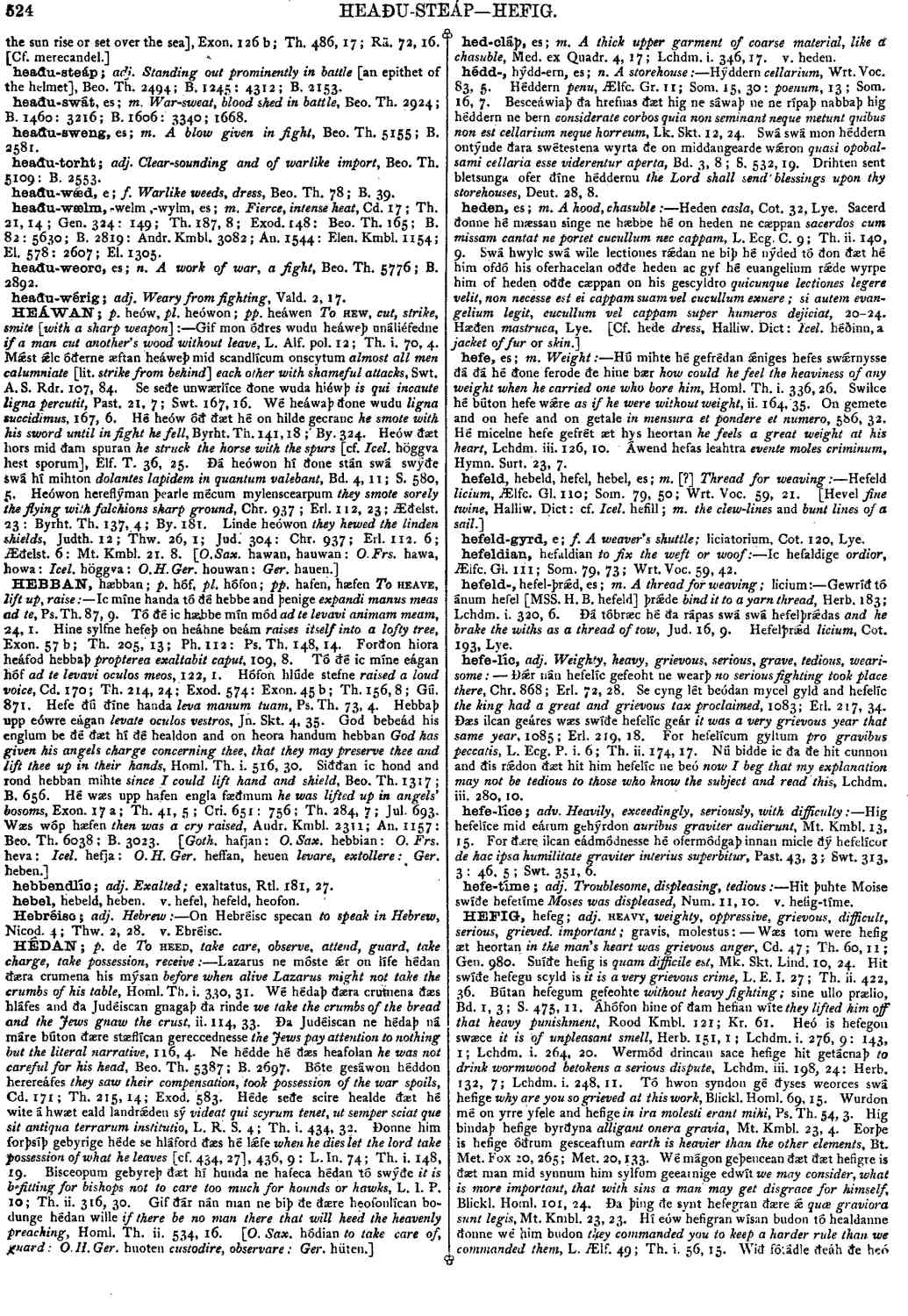HÉDAN
- verb [ weak ]
-
Lazarus ne móste ǽr on lífe hédan ðæra crumena his mýsan
before when alive Lazarus might not take the crumbs of his table,
- Homl. Th. i. 330, 31.
-
Wé hédaþ ðæra crumena ðæs hláfes and ða Judéiscan gnagaþ ða rinde
we take the crumbs of the bread and the Jews gnaw the crust,
ii.- 114, 33.
-
Ða Judéiscan ne hédaþ ná máre búton ðære stæflícan gereccednesse
the Jews pay attention to nothing but the literal narrative,
- 116, 4.
-
Ne hédde hé ðæs heafolan
he was not careful for his head,
- Beo. Th. 5387; B. 2697.
-
Bóte gesáwon héddon herereáfes
they saw their compensation, took possession of the war spoils,
- Cd. 171; Th. 215, 14; Exod. 583.
-
Héde seðe scire healde ðæt hé wite á hwæt eald landrǽden sý
videat qui scyrum tenet, ut semper sciat que sit antiqua terrarum institutio,
- L. R. S. 4; Th. i. 434, 32.
-
Ðonne him forþsíþ gebyrige héde se hláford ðæs hé lǽfe
when he dies let the lord take possession of what he leaves
[cf 434, 27], 436, 9: L. In. 74; Th. i. 148, 19. -
Bisceopum gebyreþ ðæt hí hunda ne hafeca hédan tó swýðe
it is befitting for bishops not to care too much for hounds or hawks,
- L. I. P. l0; Th. ii. 316, 30.
-
Gif ðár nán man ne biþ ðe ðære heofonlícan bodunge hédan wille
if there be no man there that will heed the heavenly preaching,
- Homl. Th. ii. 534, 16.
Bosworth, Joseph. “HÉDAN.” In An Anglo-Saxon Dictionary Online, edited by Thomas Northcote Toller, Christ Sean, and Ondřej Tichy. Prague: Faculty of Arts, Charles University, 2014. https://bosworthtoller.com/18576.
Checked: 0